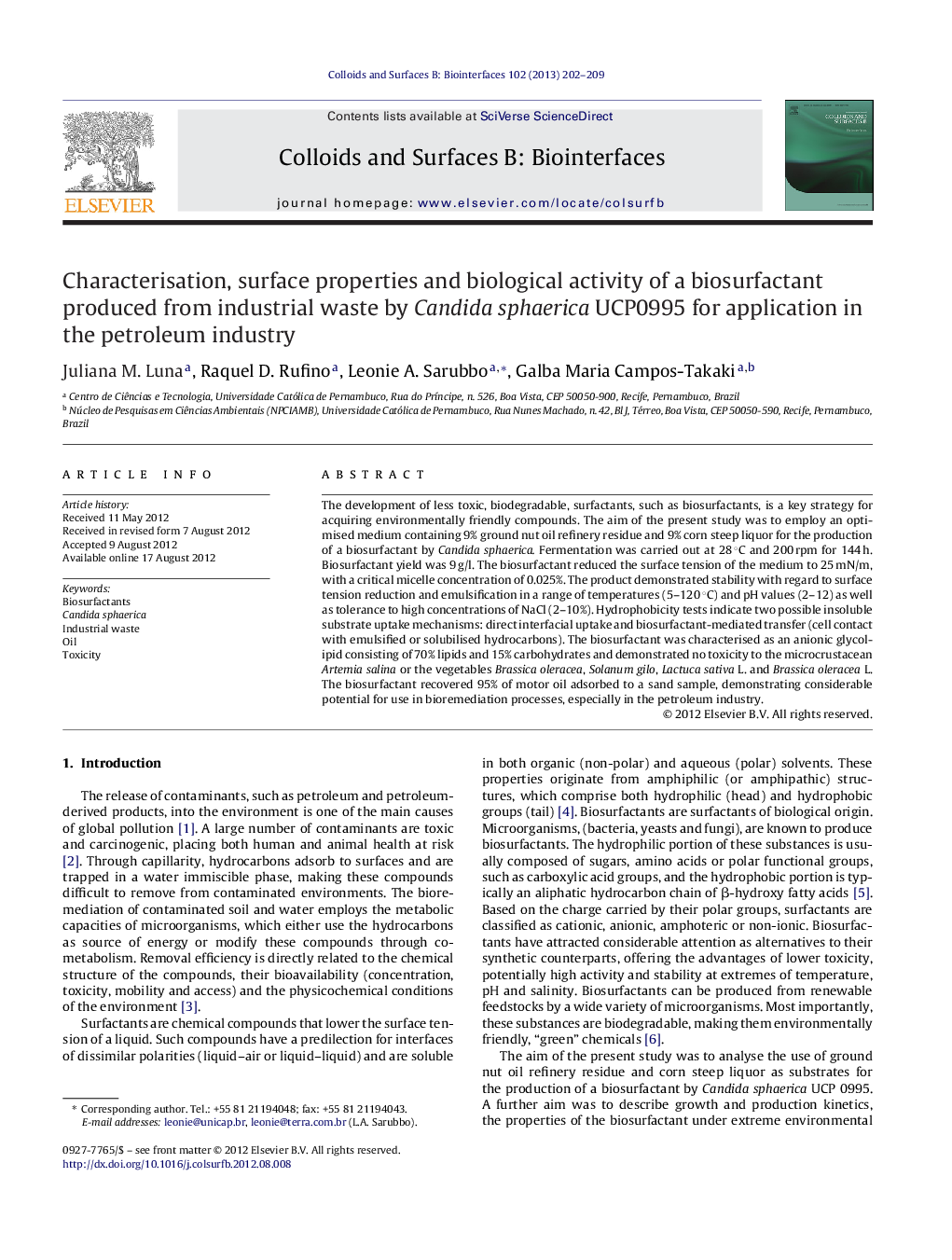| کد مقاله | کد نشریه | سال انتشار | مقاله انگلیسی | نسخه تمام متن |
|---|---|---|---|---|
| 600521 | 1454302 | 2013 | 8 صفحه PDF | دانلود رایگان |

The development of less toxic, biodegradable, surfactants, such as biosurfactants, is a key strategy for acquiring environmentally friendly compounds. The aim of the present study was to employ an optimised medium containing 9% ground nut oil refinery residue and 9% corn steep liquor for the production of a biosurfactant by Candida sphaerica. Fermentation was carried out at 28 °C and 200 rpm for 144 h. Biosurfactant yield was 9 g/l. The biosurfactant reduced the surface tension of the medium to 25 mN/m, with a critical micelle concentration of 0.025%. The product demonstrated stability with regard to surface tension reduction and emulsification in a range of temperatures (5–120 °C) and pH values (2–12) as well as tolerance to high concentrations of NaCl (2–10%). Hydrophobicity tests indicate two possible insoluble substrate uptake mechanisms: direct interfacial uptake and biosurfactant-mediated transfer (cell contact with emulsified or solubilised hydrocarbons). The biosurfactant was characterised as an anionic glycolipid consisting of 70% lipids and 15% carbohydrates and demonstrated no toxicity to the microcrustacean Artemia salina or the vegetables Brassica oleracea, Solanum gilo, Lactuca sativa L. and Brassica oleracea L. The biosurfactant recovered 95% of motor oil adsorbed to a sand sample, demonstrating considerable potential for use in bioremediation processes, especially in the petroleum industry.
Figure optionsDownload as PowerPoint slideHighlights
► A low-cost glycolipidic biosurfactant was produced by the yeast Candida sphaerica.
► The biosurfactant showed a surface tension of 25 mN/m and a CMC of 0.025%.
► The biosurfactant was stable under extreme environmental conditions.
► The biosurfactant did not exhibit toxicity against vegetal seeds or brine shrimp.
► The biosurfactant recovered 95% of motor oil adsorbed in sand.
Journal: Colloids and Surfaces B: Biointerfaces - Volume 102, 1 February 2013, Pages 202–209